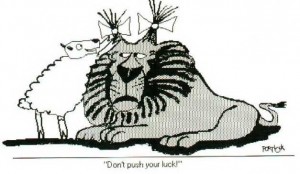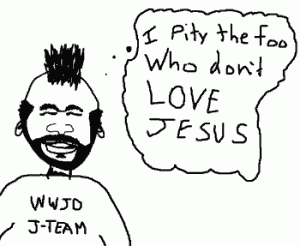 Warning! Spoilers and Theology Ahead!
Warning! Spoilers and Theology Ahead!
The funny thing about the criticism that J.K. Rowling received over the years from right wing Christian groups was the fact that they could ignore the obvious Christian undertones that characterized the books from the beginning. A chosen child who saves his people from an evil snake? Come on people, how did you think this book was going to end?
However it would be wrong to consider Harry an outright “Christ figure.” The truly analagous Aslan is both the creator and lord of Narnia, and the one who dies to redeem his people from their evil choices. Harry on the other hand, must kill the evil inside of him, so that he and those he loves will survive.
Harry is like any lover of Jesus: an imperfect replication of Christ.
Christ’s story is the God who died so that all might live. What Christ accomplished in his death for the cosmos, so we accomplish in our baptism and throughout a life of growing in the way of Jesus.
Jesus put it this way:
“If any man will come after me, let him deny himself, and take up his cross, and follow me.”
So we have this image of Harry, having been murdered by Voldemort. In between worlds, the spirit of Dumbledore points out that a little piece of Voldemort is dying. Voldemort was inside Harry all along. There was a part of Harry that made his life miserable. It disfigured his forehead, gave him migrains and fits of depression, and strange abilities that scared his friends. That piece of Harry was a piece of Voldemort buried inside of him, and it had to die so that Harry and his friends could live.
Paul, an early follower of Jesus put it this way:
“Our old self was crucified with him
so that the body ruled by sin might be done away with
that we should no longer be slaves to sin
because anyone who has died has been set free from sin.”
Harry Potter is not so much a Christ figure as a Christian Figure. His is not a Passion Play so much as a Sanctification Story. Christ has already died for the world. Now we must die ourselves.
What it took Rowling tens of thousands of pages to say, Bonhoeffer put in one sentence:
“When Christ calls a man, He bids him come and die.”










 Tweets
Tweets